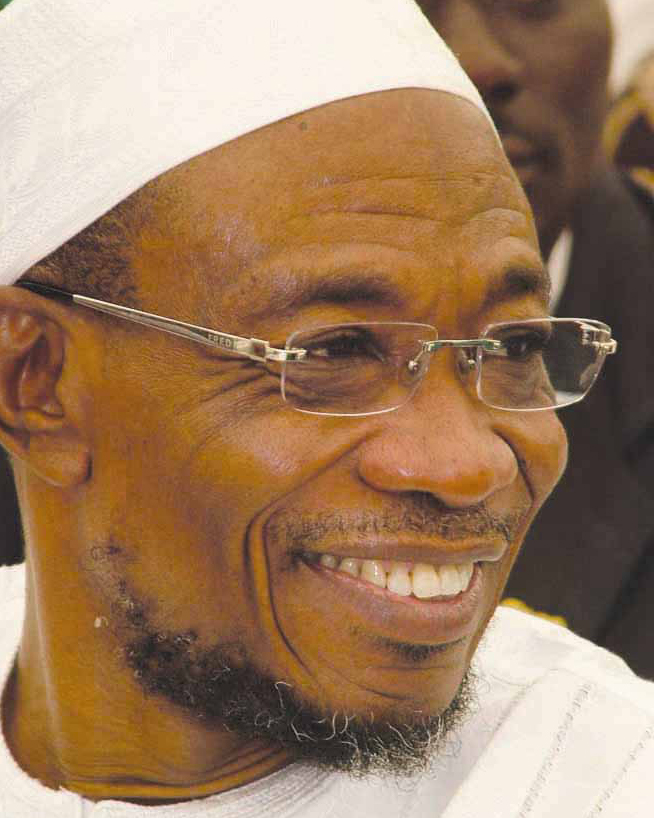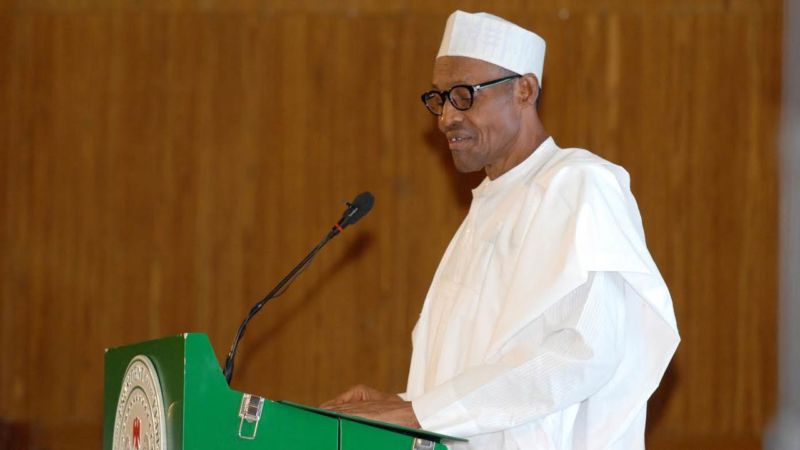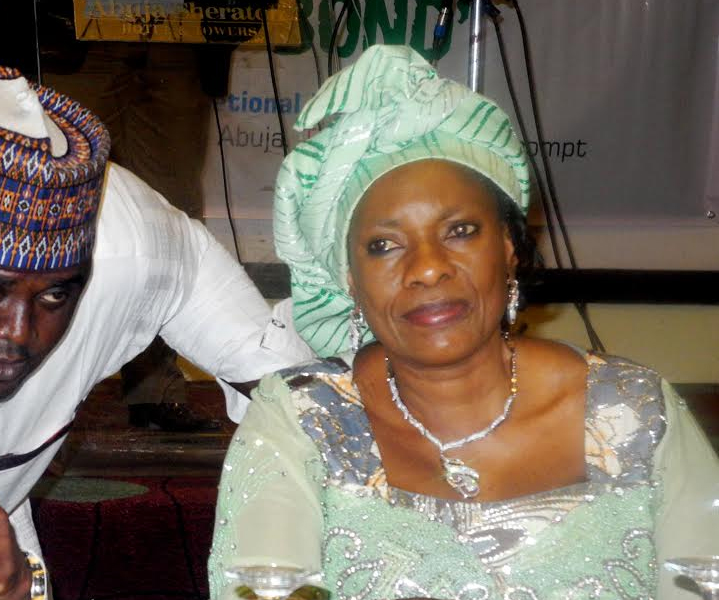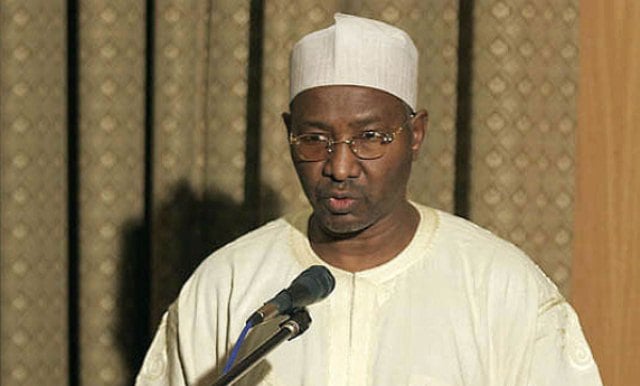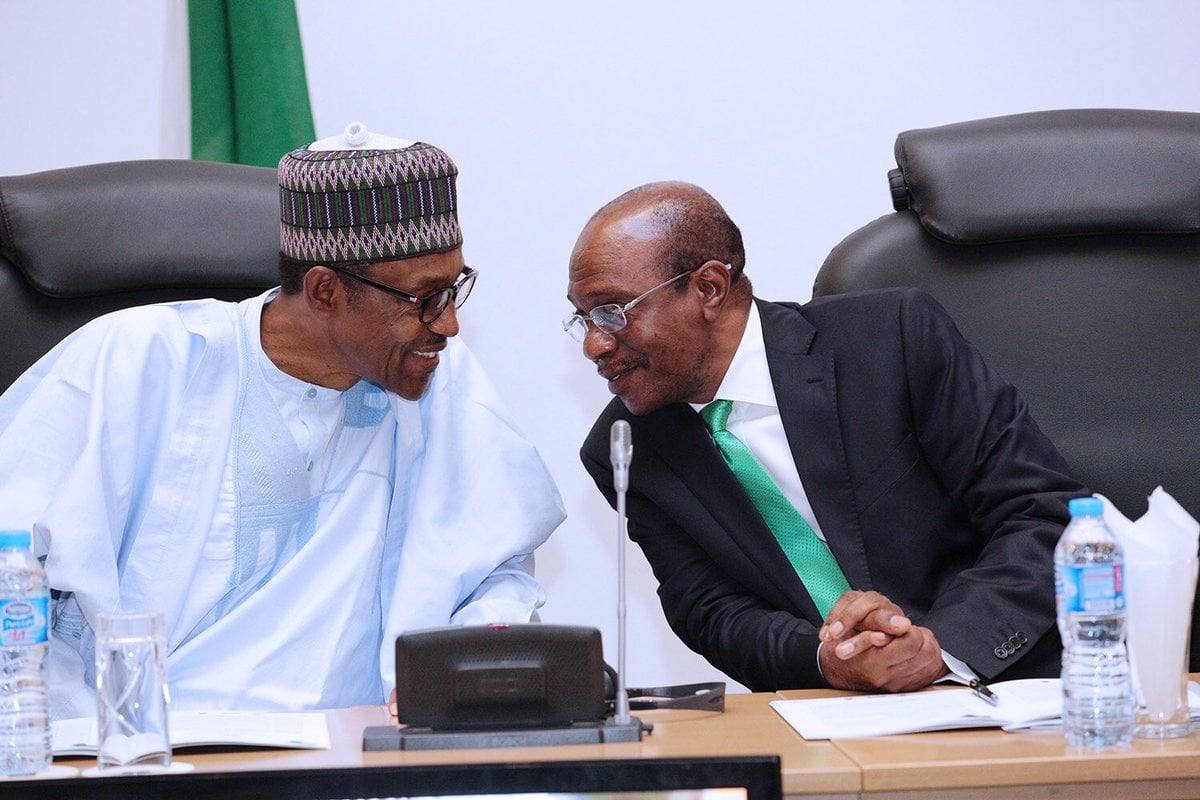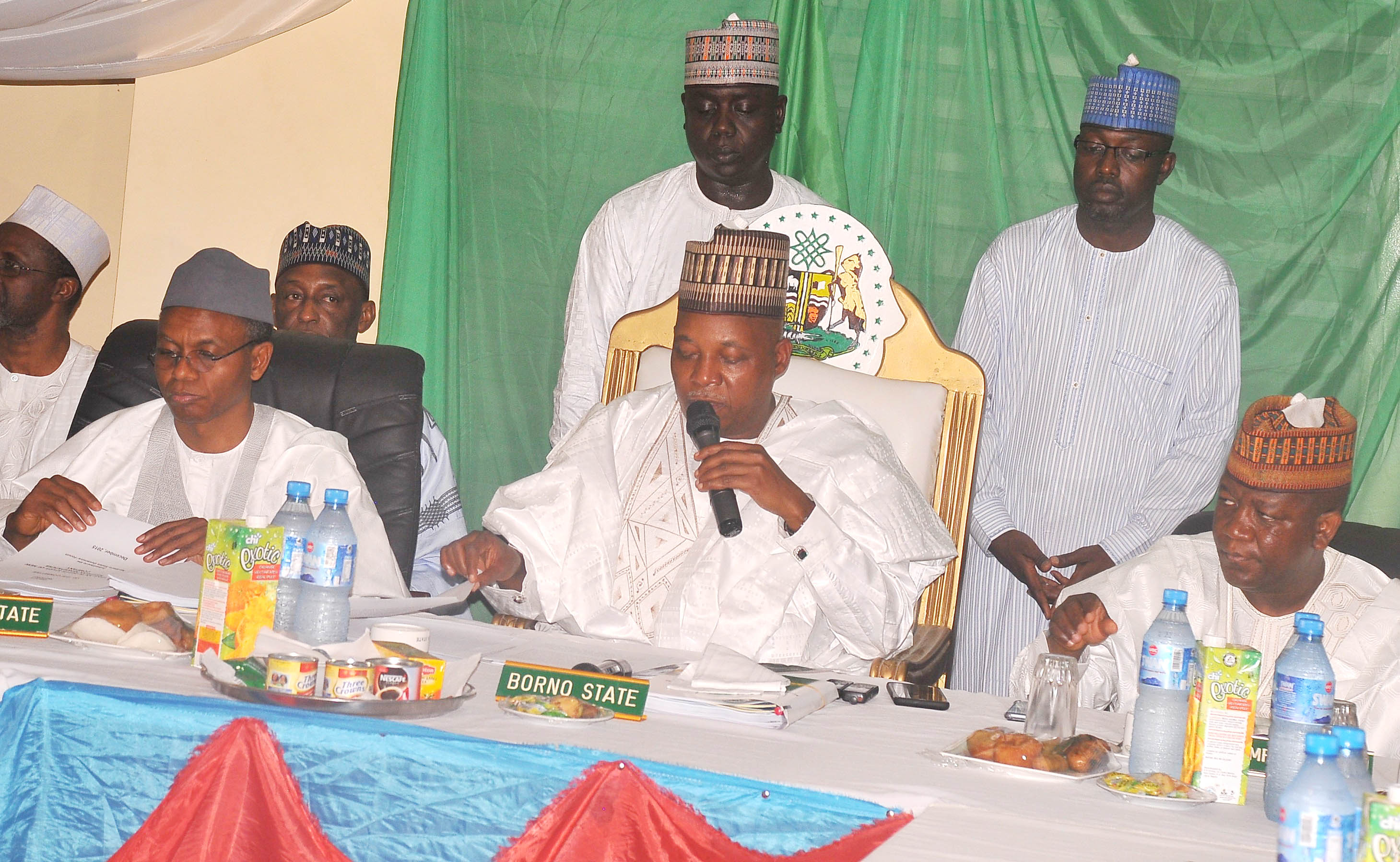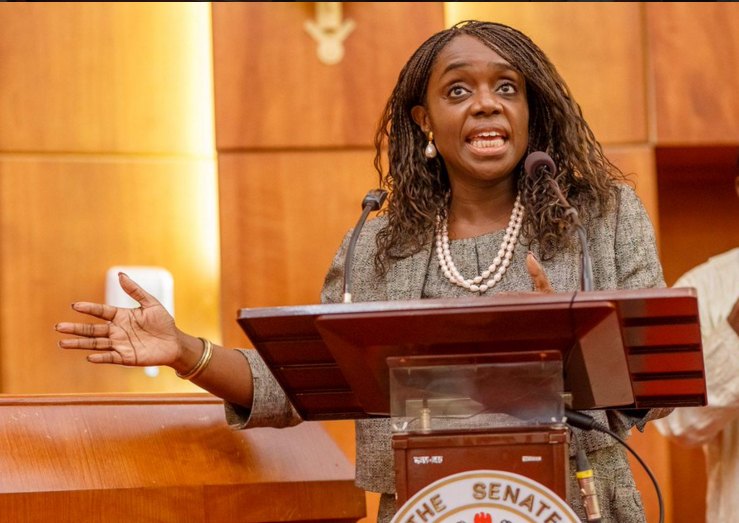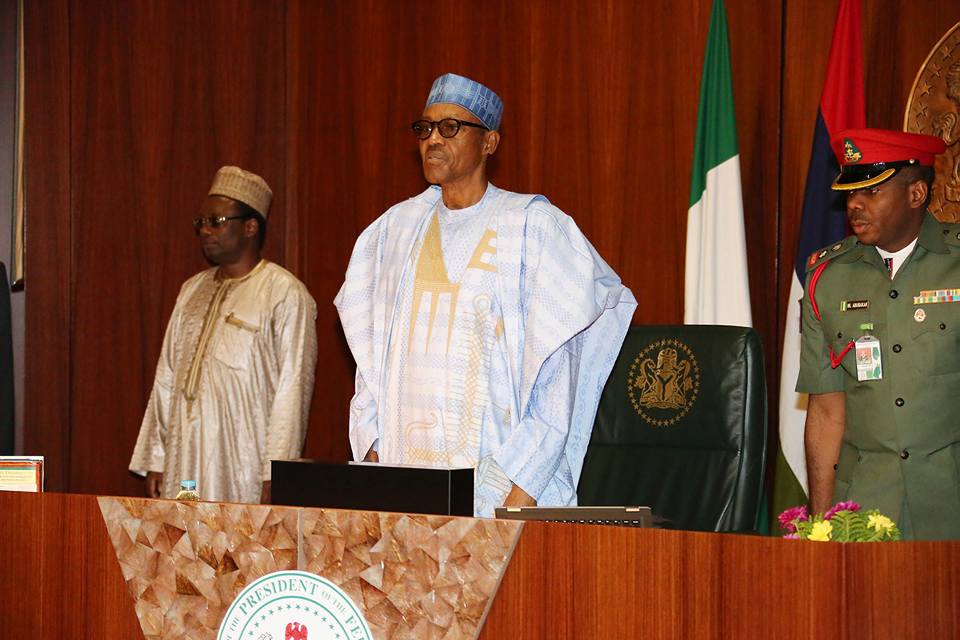I will like to thank the management of Right Dev Limited for the kind invitation to the public presentation of their publication, The Point, and first annual independence lecture on the economy.
The Point is coming out at the time the prospect of the newspaper in the traditional sense of the printed word is increasingly becoming bleak. A time it was when the SundayTimes alone sells about a million copy. Though the circulation figures of newspapers are closely guarded like news sources, it is doubtful if all the newspapers combined now sell up to 500,000 copies in a day, even when we have more newspapers than before. The Times titles have since disappeared altogether.
This regression is not due to dwindling purchasing power of Nigerians or the emergence of cable television and the new media alone. Increasingly, public trust in newspapers for accuracy and relevance has equally waned. Atrocious grammar, self-contradiction, superstition and rumour mongering, outright falsehood and brazen attempt to incite the public into a particular political direction or action, among others, have eroded the credibility of newspapers.
It is my sincere hope that this new entrant will beat a new path and carve a niche for itself in accuracy, fairness, truth and relevance. Humans will always buy any item they consider to be valuable. Even as things stand, newspapers will continue to rise and some, no matter how successful they might think they are, are going to fall, once they overplay their cards and take the reading public for granted.
Advertisement
Our subject of discussion is actually a question – ‘What is the economics of change?’ This is a play on word that indirectly put to task the campaign mantra of our party, the All Progressives Congress (APC) that promised Nigerians a change for the better during last year’s election campaign. It is being subtly challenged in light of the declaration by the minders of the Nigerian economy that it has lapsed into recession.
This is on the heels of steep inflation and rising cost of all items; the continued fall in the value of the naira against other currencies; retrenchment of workers in the private sector and the challenges faced by 27 states of the federation in paying workers salaries.
There has also been an unusual interest of the media to report human angle stories of domestic violence, divorce, suicide and petty theft, all blamed on the economic situation in the country. A man that battered his wife to death; a civil servant that reportedly stole his neighbour’s pot of soup; a woman that chopped off her husband’s manhood; and depressed individuals that took their own lives are regular and prominent daily news items, all blamed directly on the recession.
Advertisement
So, therefore, the question is rhetorical because it is cast in a self-evident form with the answer so obvious and tellingly screaming ‘No, this is not change or, at least, not the change we asked for’.
But quite honestly, while we may not deny the obvious, these developments do not actually reflect the whole truth. The freefall of the Nigerian economy had begun long before the coming to power of APC. It has come to the nadir now and we can only be thankful that it is not worse than it actually is, because, indeed, it could have been worse.
The fundamental problem is that we can no longer fund our imports because our foreign earnings have progressively declined while our taste for and dependence on foreign goods have continued to increase. This is what put pressure on the naira, makes imported goods to become very expensive and the economy in a tailspin.
Let me add at this point that this recession is not new. It is a cycle that we have experienced several times in the past. We had one in the post crude oil dependency era, circa 1981-82, when Chief Obafemi Awolowo warned that the ship of state was headed for the rocks. He was dubbed then as ‘prophet of doom’ by the ruling National Party of Nigeria (NPN). His prognosis was simple. At the time, just like now, the price of oil fell. By 1983, we could hardly finance our imports and many states were distressed. The reaction then, as it is now, was to blame it on the profligacy of state governors, forgetting that revenue is recurrent – you only spend what you have and profligacy will no longer be possible when the tap runs dry since you cannot spend what you don’t have.
Advertisement
Again, oil price fell under the General Sani Abacha regime, bringing economic downturns and stress to the states. We had this again during the brief spell of General Abdulsalam Abubakar. The difference then was that salaries and emoluments of workers were a reasonable fraction of expenditure and the military government of the time was not under any obligation of development. The military was more like an occupation force whose primary responsibility was to maintain law and order and keep the peace.
Former President Olusegun Obasanjo’s administration also had the same problem twice while his successor, Umaru Yar’Adua, also had a depression on account of falling oil price.
The difference with these previous situations was that they never lasted. However, this is the first time that there will be a decline in oil price which has been sustained for more than two years running. Sooner or later, it is bound to knock the bottom off any economy.
Don’t let us kid ourselves; we are dependent on imports, for everything. We import food, automobiles, petroleum products, drugs, clothing, building materials, machineries, electronics and household products.
Advertisement
You are aware that up to the middle of 2013, crude oil was selling well above $120. The federation account disbursed in excess of N1 trillion every month and our foreign reserve was rising. At a point in 2008, it stood at $62 billion. We were not saving, or better put, we were not using this huge earnings to develop our economy. According to the CBN, the Federal Government funded the operations of Bureau de Change for 11 years with $66 billion before it was stopped in January this year. During this period, Nigerians were encouraged to obtain credit or debit card with which to shop abroad or buy goods online.
Our foreign earnings have since dropped because of the fall in oil price. Late last year and early this year, oil sold for as low as $22 before hovering now around $50. But we have double whammy in that not only has price dropped, our daily production fell as well. From all accounts, we are losing not less than one million barrels of crude oil per day, out of our 2.3 million official allocation, due to sabotage by militants in the Niger Delta.
Advertisement
In the absence of other serious foreign exchange earners, we are bound to have problems financing our imports, which are huge and humongous. Just take a sample:
At official level, according to NNPC, we spend $20 million daily or $1.8 billion quarterly which translates to $7.2 billion annually to import fuel. We also spend $20 billion every year to import food. This will include $700 million on fish. There are conflicting figures but the highest, from a former minister of commerce and industry, Engr. Charles Ugwuh, claims that we spend $2.6 billion annually to import rice while the CBN claims that our rice import bill for three years cost $2.4 billion. It will also include wheat, biscuits, noodles, dairy products, pastas, wines and other food items.
Advertisement
By importing, we are simply developing the economies of the nations we buy from through job creation, value chain maintenance, capacity for product development and other spin off effects of production.
You can imagine that there are seven million vehicles on our roads and we do not produce a single tyre for them. If the average lifespan of a tyre is three years, then every three years, we need 28 million tyres, working on the assumption that an average car has four wheels. We must then find a way to import 28 million new or used tyres. We can imagine what effect it would have on our economy if we produce just half of these tyres at home.
Advertisement
Then of course, we import textiles and clothing items, including handkerchiefs, underwear and footwear to the tune of $4 billion in a year. Apart from traditional wears, virtually all formal wears are now imported. For a very long time now, I have stopped wearing non-traditional dresses. If half of the country had been like me, it mean that at least 80 million people will engage our local tailors and retain that whole transaction within our economy.
This problem did not begin last year. It has been the orientation of our economy since the oil boom of the 1970s. It must therefore be sensitive to the shocks of oil price crash.
What we can do in the short term is to find alternative sources of funding for our balance of trade deficit through borrowing, restriction on the importation of non-essential goods for which we can readily find local alternatives and disposing off idle and non-performing assets. We should also by whatever means end the conflict in the Niger Delta to be able to ramp up oil production. Adding one million barrels to our production will take us out of the woods. Therefore, plugging leakages and recovering loot, as the government is doing, is a right step to stop the haemorrhaging of the economy and maximise the current situation.
Another short term solution is to, in the Keynesian mode, engage in direct employment of youths. In spite of neoliberal opposition, this policy has never failed in addressing depression in the past. This is one of the innovations we brought to governance. Our administration has carried out the engagement of two tranches of 20,000 youths in public works in quick succession. The OYES cadets were not given permanent employment but engaged as volunteers and given monthly allowance. They were eventually given soft landing in the various empowerment schemes of the government in agriculture, teaching and information and communication technology. In less than two years of taking the youths off the streets, crime rate in Osun dropped to rock bottom. It also reflated the local economy since the N200 million monthly allowances given to them percolated into the grassroots. It is government money well spent. The programme has since been adopted by the World Bank and introduced nationally in a modified form as YESSO.
The long term solution is to get off the addiction to imported goods and start producing what we consume. We have no business importing fuel, for instance. We should be producing refined fuel, not just for local consumption, but for export as well. There should be a national policy centred on local refining of our crude. It will not only reduce the price of fuel, it will create jobs, wealth, foster a value-chain and bring development.
We should also cut the importation of food to less than 25 per cent of the current volume. This is to enable us develop agriculture. It has been the policy of our administration since day one to promote food production in order to be able to feed our people. It is really shameful that in spite of our endowments in natural resources, we are still dependent on imported food items as a nation.
We should return to farming, not just at the subsistent level, but as big business. We should strive to increase agriculture productivity and yield. While Nigeria is the leading producer of cassava for instance, the traditional yield per hectare has been around 10 tonnes while global average in 2010 put at 12.5 tonnes. However, India’s average yield in 2010 was 34.8 tonnes per hectares and Thailand’s yield is reported to be a whopping 120 tonnes per hectare.
If we can double our food output from cultivating the same land size as we currently do, it is possible to eliminate hunger from the country. But this will require innovation in crop science, agriculture mechanisation, extension services, improved inputs and agriculture entrepreneurship. The agriculture knowledge base has to be widened and scientific findings have to be brought to (and applied by) the farmers.
There must also be a transition from producer of primary goods to value adding. Adding values create a value chain that increases the momentum of development. For instance, the value of one kilogramme of cocoa beans that we export is multiplied 5,000 times by the time we import it as chocolate. If we can make the same quality of chocolate, we could have earned 5,000 times the value we derive from cocoa beans in a value chain that includes revenue generation, wealth creation, job creation and spiralling effect of developing ancillary industries around this product.
The primary engine of development is education. This is where innovation is most needed. A functional system of education that develops and put to use the creativity of Nigerians is urgently needed.
I conceive of education as the preparation and development of worthy citizens for the immediate society and the world at large. Education is that infrastructure of the mind that develops our youths to become models of good character, innovation and competence. This is what we call Omoluabi in Yoruba.
Omoluabl is the epitome of virtue. An Omoluabi persona is honest, courageous and rational; one who excels in character, innovation and competence. The educated person is well connected to his or her culture and heritage. Everything he/she does with others, the society, family and friends is driven by the desire to live and demonstrate good deeds. It is only when we interrogate this definition that we can know if we are meeting the objectives of education.
Education has not been an engine of development, rather, it is a system of social stratification where bland certificates are issued in order to separate the political and economic elites from the others. This is one of the factors responsible for poor productivity. Those who have certificates without the requisite skills cannot drive enterprise or provide leadership. They only see their certification as entitlement to privileges.
It is always embarrassing to hear employers say our graduates are not employable. The bright ones among them have to be trained and retrained to be found suitable for the jobs on hand.
Education therefore has received the greatest attention and resources from our administration. One of our first tasks was to convene an education summit, headed by the Nobel Laureate, Prof Wole Soyinka. That summit produced the blueprint of our education reforms. In a state of roughly four million people, we embarked on an ambitious programme of building from scratch 100 elementary schools, 50 middle schools and 20 high schools. Each of these schools has capacity for 600 pupils, with the high school being a three in one, each designed and equipped to sustain 1000 pupils. These new public schools soon began to displace private schools.
We provided a stand-alone e-learning tablet, which we named ‘Opon Imo’ (tablet of knowledge), for final year students in public schools, in share display of creativity. This tablet contains all the recommended 56 textbooks by the three examination bodies for senior school certificate examinations in Nigeria. It contains also past questions of these bodies, a virtual classroom, extracurricular zone and the themes of Yoruba traditional religion. This tablet was the saving grace in a year when teachers went on strike for eight months and did not prepare the final year students for their examinations.
We also pioneered in a sense, the home grown school feeding programme (OMEALS), in which sumptuous meals are provided for 252,000 elementary school pupils on every school day. We say ‘in a sense’ because the programme had existed in an attenuated form prior to our coming, but our administration gave it a new identity and prominence.
Because of its success in Osun, it has now been nationally adopted by the Federal Government. Very recently, our state organised a national induction for other states understudying the programme, preparatory to implementing it in their own states. I have also been invited twice to the British Parliament to share our experience with the world.
The interesting aspect of this programme, as it relates with innovation, is that it is integrated with our agriculture policy and local empowerment. Under it, 3000 community-based caterers were employed, trained and assisted financially to set up their business.
Also, to be able to feed these pupils, 15,000 whole chickens, 254,000 eggs, 35 heads of cattle and 40 tonnes of catfish are purchased weekly from farmers and food vendors. This has kept the farmers in profitable business and even attracted other youths to farming.
In keeping with the original objective of making the programme home grown, the O’MEALS has an input supply chain that is linked to our various agricultural development projects. Consequently, our Osun Fisheries Out-growers Production Scheme (OFOPS) provide the catfish used for the school feeding programme while Osun Broilers Out-growers Programme (OBOPS) provide part of the chickens.
We also need a national policy on entrepreneurship development. The most successful and leading enterprises in the country are owned largely by foreigners, with our people being minority shareholders. A system where it is easier to prosper and succeed in business through buying and selling is inherently anti-development. Entrepreneurship training should be part of education at all levels.
In all, we should change the direction of our economy from dependency to self-sufficiency. It will take sacrifice, hard work, determination and unrelenting pursuit.
If we fail to do this, we should be preparing for another recession when next there is a fall in oil price.
Once again, I thank Right Dev Limited for the invitation to be here and I wish your new born baby a successful entrance into the media world.
I thank you all for your kind attention.
Ogbeni Rauf Aregbesola, Governor of Osun, South West Nigeria delivered this at the one year anniversary of The Point Newspaper in Lagos.
Views expressed by contributors are strictly personal and not of TheCable.
Add a comment
